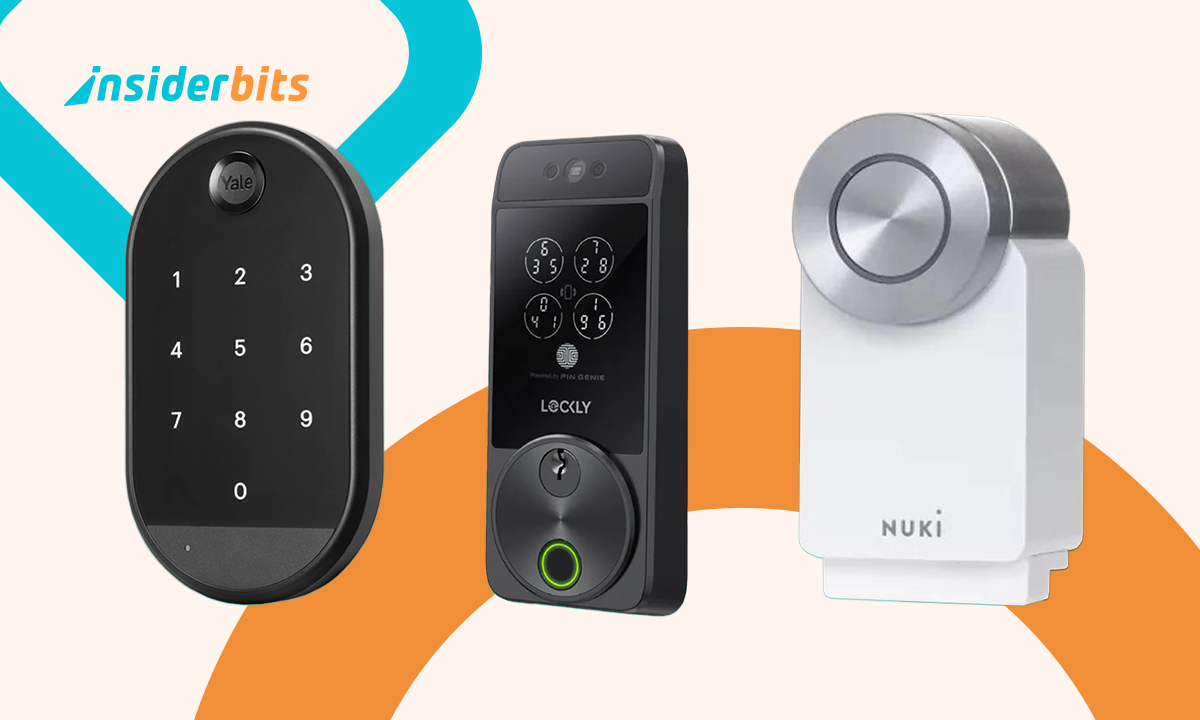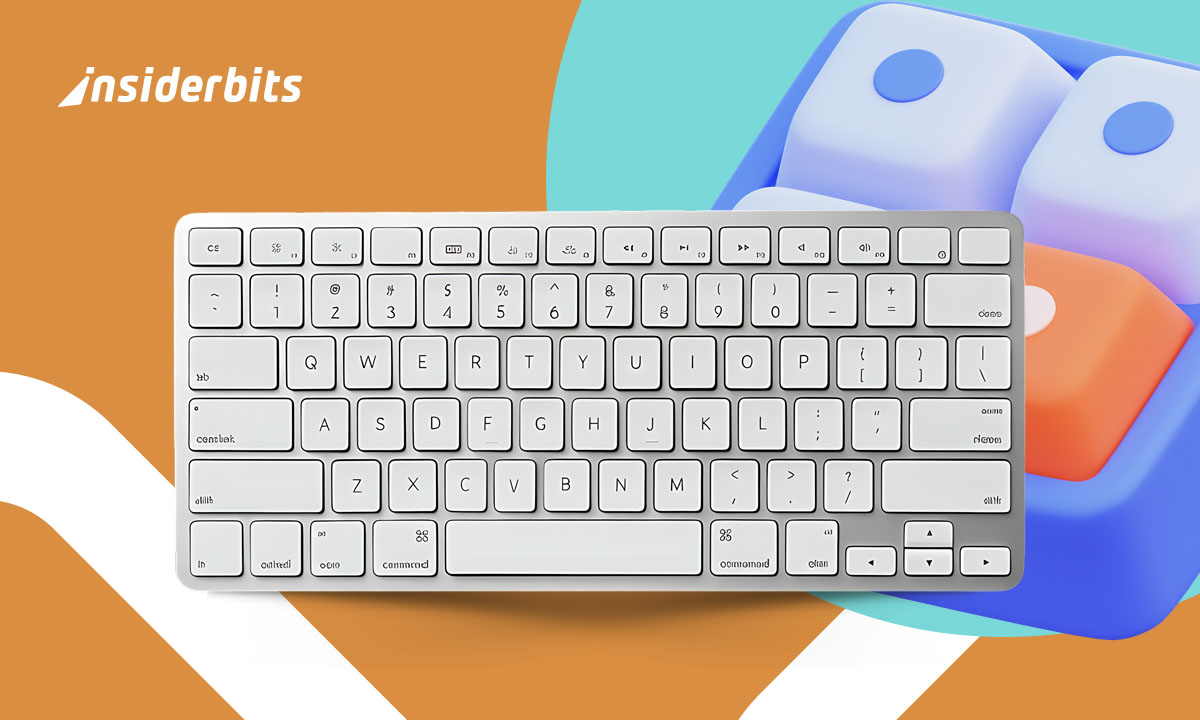It’s embarrassing, let’s face it, that your front door lock hasn’t changed much since the 1800s in an era when your refrigerator can order groceries. With features like voice commands, fingerprint scanning, and the ability to let your dog walker in while you’re at work, the best smart locks are the technologically advanced guardians that replace heavy keys.
However, not all smart locks are made equal and while some provide security comparable to that of Fort Knox, others are vulnerable to hacking by a determined squirrel. Since nothing ruins your day more than discovering that your “smart” lock has just invited burglars in for tea, we’ve tested the best options to help you.
The best smart locks you can buy right now
After months of testing (and several accidental lockouts), these models stand out in 2025:
ULTRALOQ U-Bolt Pro combines fingerprint scanning with auto-locking magic. Its weatherproof design survives everything from blizzards to heat waves, while the military-grade encryption keeps hackers at bay.
The app alerts you whenever someone enters—perfect for monitoring teens’ curfews.
Information
Price: $229
Key features: fingerprint, auto-lock, tamper alerts
App rating: 4.8 stars
Yale Approach offers keyless convenience with a sleek keypad that lights up at your approach.
It works with all major smart home systems and includes a physical key backup (for when tech inevitably fails). The silent auto-lock feature won’t wake light sleepers.
Information
Price: $199
Key features: Keypad, silent operation, smart home integration
Kwikset Halo Select brings voice control to your doorstep via Alexa and Google Assistant. The sleek design hides its tech prowess behind a traditional lock appearance—ideal for HOA neighborhoods that hate modern aesthetics.
Information
Price: $179
Key features: voice control, tamper-proof design
Key features to look for in a smart lock
Don’t get dazzled by flashy specs—these are the features that actually matter:
Auto-locking that actually works
The holy grail of smart lock features—reliable auto-locking means never again lying in bed wondering if you remembered to lock up. But not all auto-lock systems are created equal:
- Motion-based: locks when it senses you’ve walked away (great unless you garden near your door);
- Timer-based: locks after a set period (30 seconds to 5 minutes);
- Geofencing: uses your phone’s location to lock when you leave the area.
Friend tip: look for models like the ULTRALOQ U-Bolt Pro that combine multiple methods for foolproof operation.
Activity logs worth checking
Basic logs tell you when the door was opened. Useful logs tell you:
- Which method was used (fingerprint, code, key);
- Failed attempt alerts (someone trying random codes);
- Duration of entry (alerts if left open too long);
- Exportable data for security reviews.
As The Verge’s testing found, the Yale Approach provides the most detailed entry analytics without being overwhelming.
Temporary codes done right
The difference between convenient access and a security nightmare comes down to:
- Expiration options: single-use, date ranges, or recurring schedules;
- Usage limits: set maximum number of unlocks per code;
- Custom permissions: restrict certain codes to specific times.
Airbnb hosts swear by the Kwikset Halo’s temporary code system that automatically expires after checkout time.
Battery backup that won’t fail you
Nothing kills the smart lock fantasy faster than being locked out because of dead batteries. The best smart locks offer:
- Low-battery warnings (at least 30 days advance notice);
- Emergency power options (9V battery contacts or USB-C ports);
- Mechanical override that works even with completely dead electronics.
Physical key alternatives
Even the most hardened tech enthusiasts should insist on:
- Hidden keyholes that don’t compromise weather resistance;
- Pick-resistant cylinders (look for ANSI Grade 1 certification);
- Key control to prevent unauthorized duplication.
The best smart locks in 2025 understand that true security isn’t about choosing between smart features and reliability—it’s about having both.
As smart home integration deepens, these foundational features remain the difference between a lock that simplifies your life and one that complicates it.
After all, the point of smart home tech is to reduce stress, not create new ways to worry about your front door.
Which brands offer the most reliable security
Not all smart lock companies deserve your trust (or your front door). These brands consistently ace security tests:
- ULTRALOQ uses bank-level 256-bit encryption;
- Yale offers professional monitoring integration;
- Kwikset features pick-resistant SecureKey technology.
Avoid no-name brands—as CNET’s testing shows, many can be hacked in minutes.
How to install a smart lock in minutes
Contrary to what your DIY-phobic uncle claims, installation is shockingly simple:
- Remove old deadbolt (just two screws);
- Insert new smart lock mechanism;
- Attach interior panel and connect to app;
- Test before closing everything up.
Most models include templates and video guides. For extra security, pair with a home security app.
Lock up your future
Choosing among the best smart locks comes down to your lifestyle—whether you prioritize fingerprint convenience, voice control, or old-school reliability with a tech twist.
One thing’s certain: once you’ve experienced keyless living, digging through your bag for metal scraps will feel positively medieval.
Now, if only they made a smart lock that could also tell you where you left your phone…





